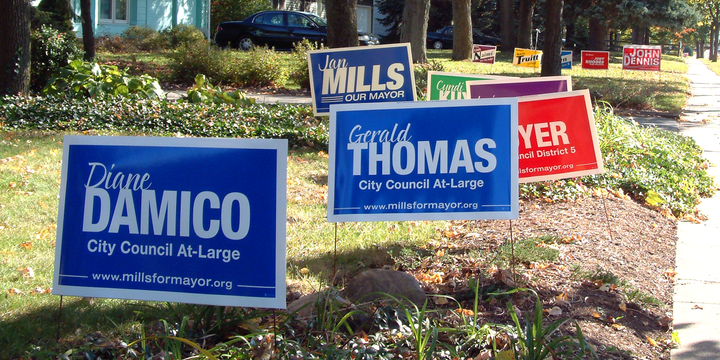Fall 2012
In what circumstances is a political candidate's character important?
When candidates agree, we care more about character. When they disagree, we care less. Why?
What determines whether a candidate for congressional office makes it to Capitol Hill? Your average political scientist will tell you that the national-level popularity of the candidate’s party is huge. Money and incumbency also play important roles. But the quality and specific positions of the candidate? Pshaw! Political scientist Walter J. Stone and PhD candidate Matthew K. Buttice, both of the University of California, Davis, beg to differ.
They studied congressional candidates in 155 House districts in the 2006 elections. To gauge the quality and ideological positions of the candidates, they interviewed state legislators and 2004 national convention delegates. (They defined candidate quality as a mixture of governing ability, integrity, and leadership prowess.) They also used a survey to assess the views of voters living in those districts.
When there are few differences in the quality of candidates in a race, Buttice and Stone found, candidates’ views on policy can be important. In the districts they studied, there was a 33 percent probability that moderate voters would go Republican if the two parties’ nominees had similar ideologies, but a 41 percent chance when the views of the candidates were polarized. The wider the ideological divide between the candidates, the less quality mattered. In the most polarized races, Buttice and Stone found that candidate quality had a significantly diminished impact.
The authors note that voters’ perception of a candidate’s character is pretty hard to change (unless there’s a scandal). Candidates have much more control over their policy positions. In toss-up districts, where moderate and independent voters are the deciders, candidates with a big quality advantage have a strong, measurable incentive to move toward the center. That reduces voter’s focus on ideology and puts the quality issue more in the forefront. Candidates who don’t have strong quality bona fides have every reason to stake out more intensely ideological positions.
Don’t trust the cynic who says that money determines elections. “Candidates carry a fair amount of the freight in these elections, even in the context of nationally polarized parties, widespread dissatisfaction with a sitting president, and deep frustration with national policies,” Buttice and Stone write.
THE SOURCE: “Candidates Matter: Policy and Quality Differences in Congressional Elections” by Matthew K. Buttice and Walter J. Stone. The Journal of Politics, July 2012.
Photo courtesy of Wikimedia Commons
